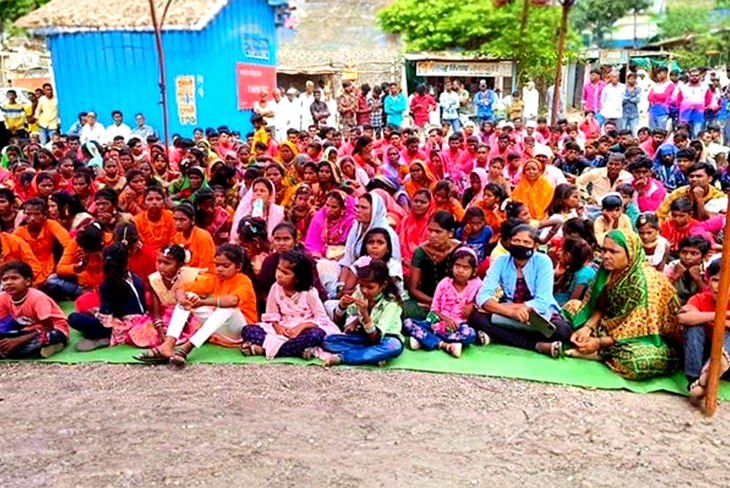The Adivasi Budget Abhiyan, a campaign to promote the enactment of Tribal Sub Plan (TSP), initiated by ActionAid Association in collaboration with various social movements, including Eklavya Adivasi Sangathan, and with the support of tribal community leaders, is active in many tribal regions of Maharashtra.
The campaign was launched on April 18, 2023, in Shirdi, Nasik, to raise awareness about the importance of the TSP among tribal communities, holding consultations with tribal community members to take their views and suggestions to draft a document listing issues faced by the community, and engaging with policymakers to push for the enactment and implementation of the plan in the state. At least 100 tribal community leaders from 80 blocks across 15 districts in Maharashtra attended the campaign’s launch event. So far, the initiative has reached out to 10,000 people through public forums and social media platforms throughout the state’s tribal belts. We held five awareness sessions for 180 community-based human rights defenders across five districts.
Before submitting the final draft of the community demand charter to policymakers, the campaign hopes to increase community engagement and gain the support of at least 5,000 tribal leaders across the state in one year. Tribal communities were eager to launch the campaign in Maharashtra as they were concerned about inadequate budget allocation for developmental and social security projects, monitoring and utilization of allocated funds, delays in development project implementation, lack of community participation, and lack of inclusion of their perspectives in developmental project implementation.
The TSP is likely to enhance tribal living standards considerably, as it has done in Andhra Pradesh and Madhya Pradesh. The TSP is a planning concept introduced in the fifth five-year plan (1974-1979) in India to channel the flow of benefits from the central government for the development of tribal communities by accelerating their access to education and health services, housing, income-generating opportunities, and protection against exploitation and oppression in different states of India. Currently, it covers 23 states or union territories across the country.

